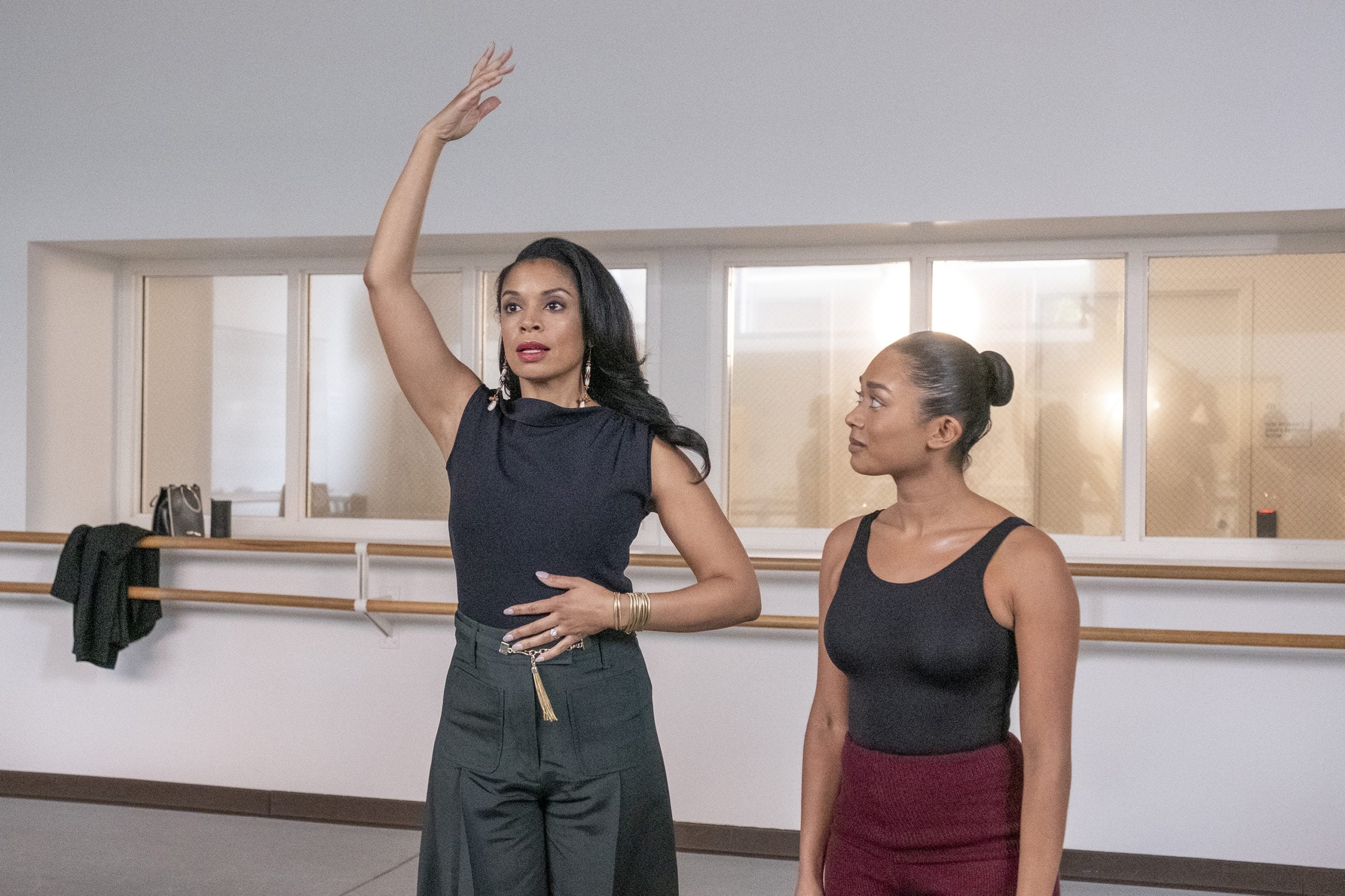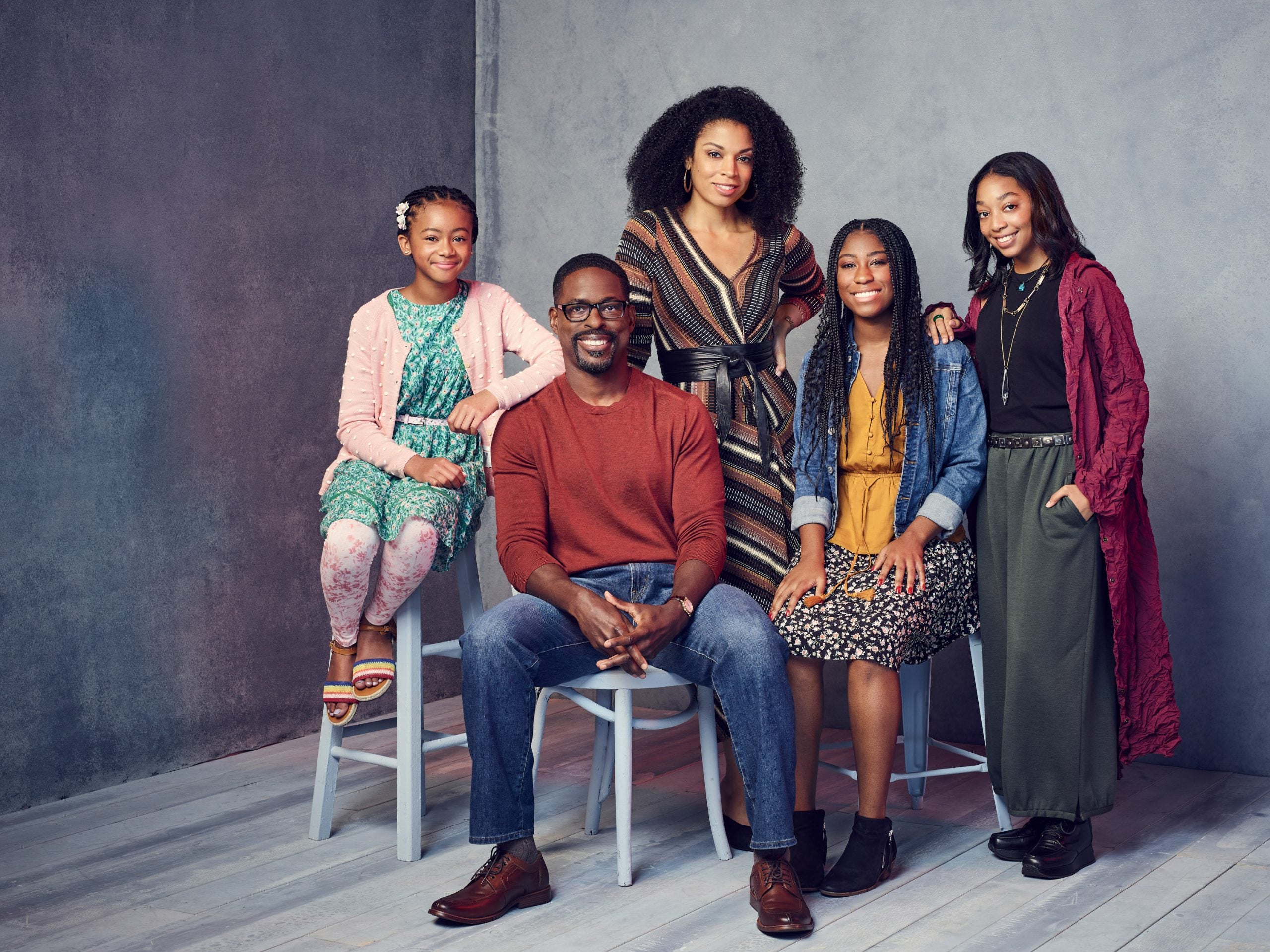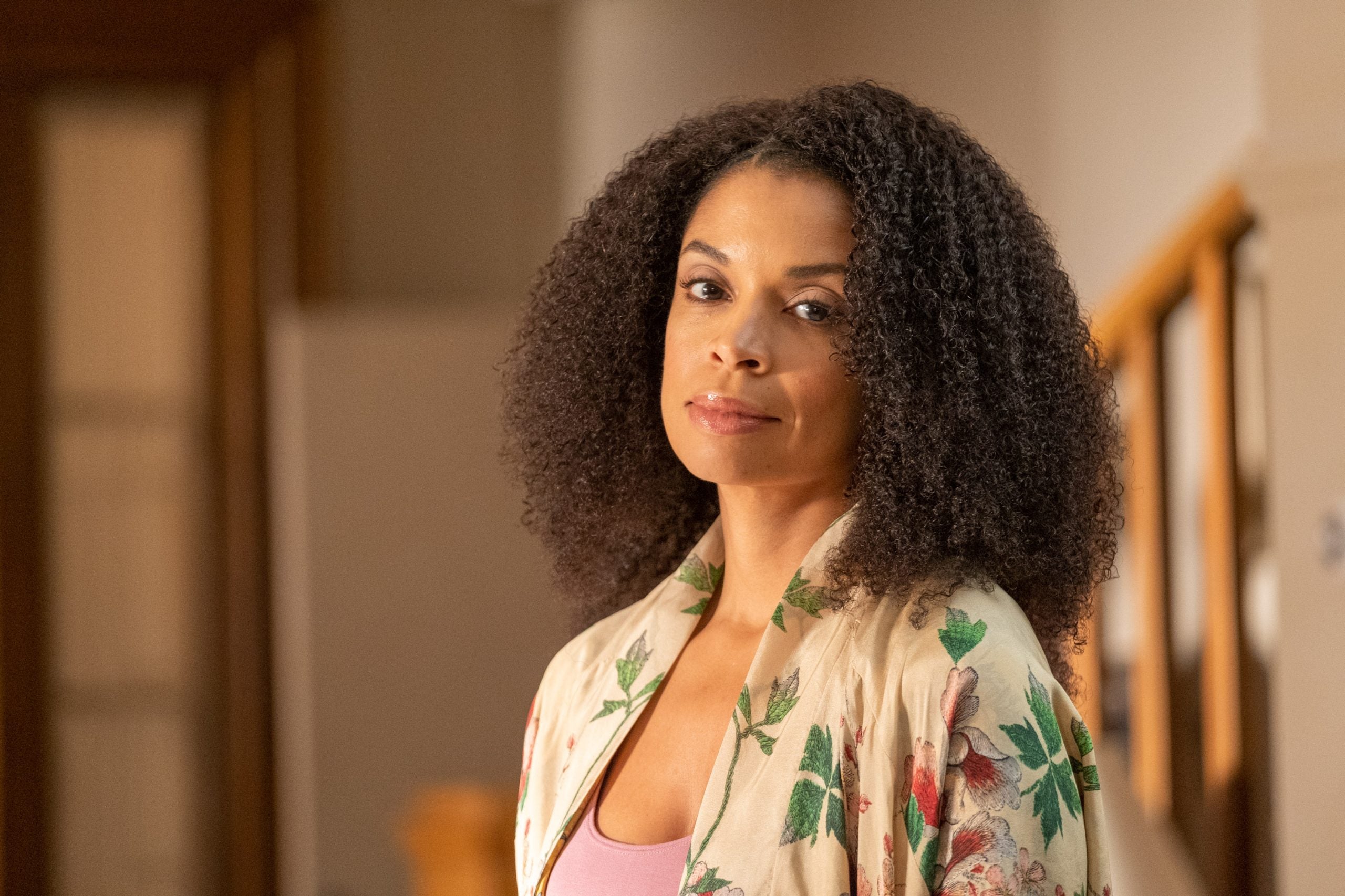This is Us fans finally got to see Beth Pearson reach her full professional potential with this week’s episode, and they have Susan Kelechi Watson to thank for it – in more ways than one.
Watson has not only portrayed Beth, the compassionate yet assertive wife to Randall Pearson on NBC’s hit multi-generational, parallel storyline family drama for the last 5 years, but she sat in the writer’s seat for Season 6, Episode 6, “Our Little Island Girl: Part 2.”
The episode finds Beth at a turning point in her dance academy’s future, amid a big return to in-person classes. The situation triggers memories of her own time in ballet academy, and the abandonment she felt when her instructor pushed her aside after her father’s sudden death. This changes the course of how she chooses to instruct her students and spells out the future of her career as a dance academy owner.
Writing Beth’s final big story arc was an emotional moment for Watson, as it signified a final goodbye to a role that has meant so much to millions of viewers and ultimately changed her life. The actress says the realization hit her in the midst of writing while a severe storm was swept New York City.
“‘Oh, this is Beth’s final Opus. This is it.’ This is sort of wrapping up her storyline as we are for pretty much everybody, all the characters this season,” she said of the realization. “And I really felt that. I felt the emotion of that and the nostalgia of it all. And so I was really happy that I got to help put those words in her mouth for this last season.”

Though this was the first episode she personally wrote, this is far from the first time she’s contributed to nuances in the script and Pearson plot points. Watson has naturally had to weigh in here and there over the show’s six seasons to lend advice to production and writing staff to give an air of authenticity to Randall and Beth’s relationship dynamics and parenting style.
Beth’s emotional intelligence and self-advocacy on both the home and work fronts has made her a fan favorite, particularly with Black women viewers who see ourselves in her approach to parenting young Black girls in the modern age, her late-career change, her long-strained relationship with her mother, and her support of her husband through his various existential crises and anxiety disorder.
As a Black family unit, the Pearson often approach family conflict and their daughters’ missteps with a pointedly non-traditional approach. Though neither Randall nor Beth are parental pushovers, their approaches to discipline vs. discussion with their daughters have often left many a Black This Is Us viewer’s eyebrow raised.
“It’s not traditional, girl. It’s not,” she laughed. “There was an episode recently where Rebecca slapped Kate and I said, ‘Ain’t this about revolutionary? We got the white ladies [hitting their kids] and the black folks putting people in timeout.’ I thought that was different. I love that.”
There are times when I’ve definitely said ‘yeah, growing up, this would’ve been handled very differently for me.’ I might even handle this very differently for my child,” she explained. “But why not give voice to another way of doing things? Why not see a family try to implement a different way of disciplining and having mutual respect for one another, yet still be respected as the parents?”

Through the characters’ more progressive parenting through extenuating life circumstances, Watson felt that it was important that the Pearson girls always showed respect for their mother and father on the show.
“Trust me, I’m really on point guard for that. They don’t disrespect their parents. But there is a different way of doing it. There are also very different circumstances.”
“They’re dealing with a daughter who is coming out. How do we do that? And then there’s an adopted child. How do we do that? You don’t just necessarily go around saying, ‘bring me the belt,'” she observed. “You really have to think; there are transitions that are happening here that we have to be sensitive to so that these young people feel they don’t have to shy away from themselves or
feel guilty or ashamed of who they are. Meanwhile, still saying, ‘you have to respect me. You have to respect this house and you have to respect that there are rules here.'”
With a writing team whose members may not always be privy to cultural norms, Watson was always able to chime in and provide feedback that would give a more accurate authentic slant to the language and communication used between parents and children.
“The great thing is that they’re so open to that,” she said. “I’ve had times when I call up Dan (Fogleman, Executive Producer of This is Us) and I say, ‘Hey, Dan, can we walk through this page real quick?’ Let me just tell you…I remember one conversation we had, I said, ‘Dan, so if Tess says that to Beth, the next scene should be that they’re in the hospital and Tess is waking up out of a coma,'” she laughed. “He’s totally into being culturally specific, as well as everything else specific. The show really wants to be as authentic as possible.”

With her time as Beth Pearson coming to a close, Watson is looking forward to several exciting new ventures she can’t quite discuss in full yet. With a film that she co-wrote and is producing that she’s looking to get completed by late summer, limited series, and some indie films in the works, Watson has a lot to look forward to after bringing the beloved character full circle.
“As one thing ends, so many things are opening up and beginning and there are some projects that I’m looking at right now that I’m actually really excited by,” she said. “They’re very different from Beth. In my career, my goal was to just run the gamut of different types of people. Good, some bad, and all that in between. I can’t play Beth forever.”